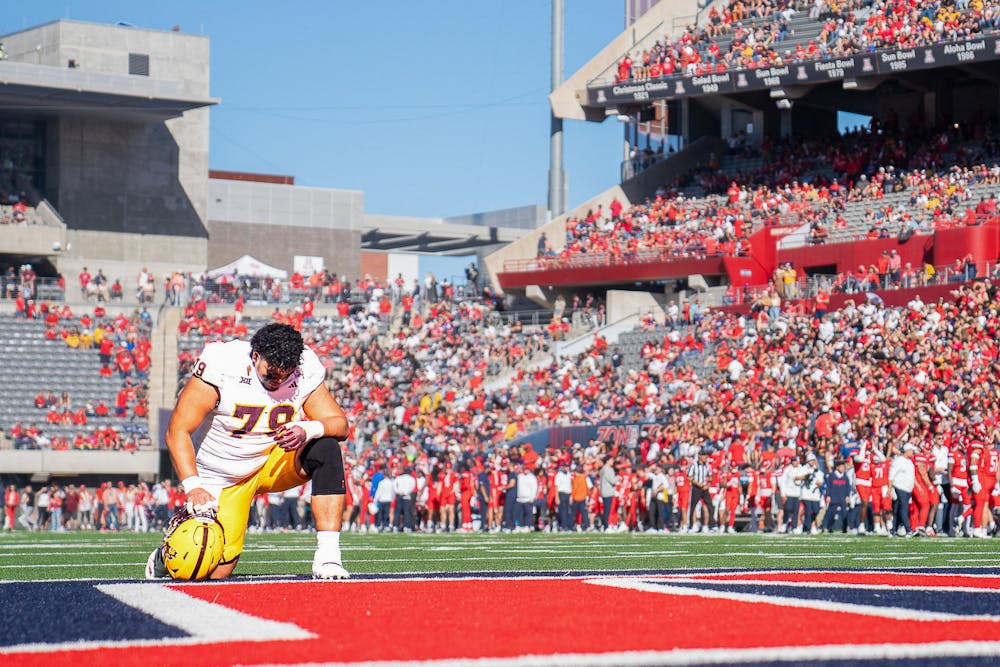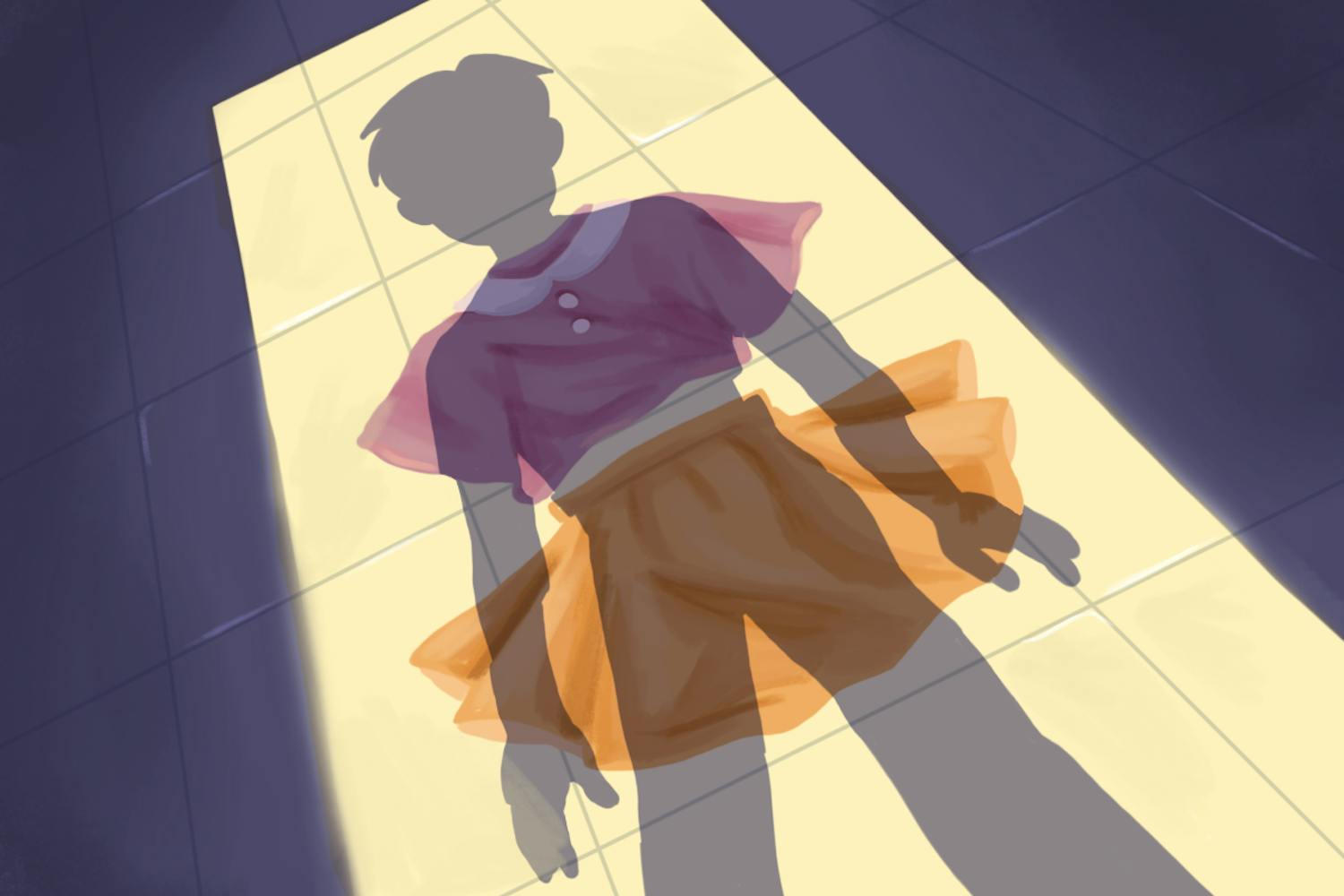"Texas 2 Tempe" — Head coach Kenny Dillingham has pushed the slogan throughout his time in the desert. The effort brought in Texas native redshirt senior defensive back Xavion Alford, and more recentlyJulian Hugo. But there's another growing movement making a different group of players feel at home.
The Polynesian pipeline in the ASU program has also been growing, but wasn't always there. The comings of players like alumni Leif Fautanu jump-started it all.
"Leif did start it," offensive line coach Saga Tuitele said. "He was one of the first guys here."
When Tuitele became a part of the ASU coaching staff, his very first recruit was Fautanu. The two formed a special bond over the next two years.
It was special to Fautanu because he'd never seen a Polynesian offensive line coach, a similar feeling a lot of players had visiting ASU. His belief in Tuitele is why he transferred to ASU from UNLV, not knowing who the Sun Devils' head coach was.
"I trusted him, and it led me to where I am now," Fautanu said. "And I'm grateful that I was able to make the decision to come here. And it's funny because when I first got to ASU, I didn't know who the head coach was. I only knew Coach (Tuitele)."
Fautanu ignited the pipeline, but after graduating, left the Valley for the NFL draft. He went undrafted but signed with the Detroit Lions. ASU built a Polynesian pipeline in those two years and more and more Polynesian players have joined in on the fun in the desert.
Redshirt sophomore offensive lineman Sean Na'a represents the culture proudly. He's entering his third season with the program and has seen the Polynesian culture bloom before his eyes, developing into something greater off the field.
"There (are) double digits of us now, so it's a lot of fun," Na'a said. "A lot of times after practice, we'll hang out at each other's house and just chill. So I feel like the brotherhood and just being Poly, just being close to each other, has been helping a lot for sure."
It's helped recruits who are Polynesian in acclimating to the team. Transitioning from high school to a college football program isn't easy for any player, but it's a little easier for Poly players in the desert.
"Even though they just got here (new players), it feels like I grew up with them, and we just have a lot of similarities," Na'a said. "It feels like we're a family, and I just knew them all my life."
The family all stems back to one hire, Tuitele. The moment he stepped on campus, a strong Poly culture naturally fell into place. Now, when young Polynesian players come on a visit, he's one of the first people they meet.
He sets the precedent for what's expected of them. He pushes them. He's the father figure everyone respects.
"I feel like we all come in, we see Coach (Tuitele) like an uncle," Na'a said. "Just that little respect factor."
Freshman offensive lineman Manamo'ui Muti added the impact Tuitele has on him: "Coach Saga (Tuitele), he's out here pushing us every day, making sure we're doing the right things, making sure we're doing our technique right."
Muti is from Hawai'i and said he's never been around this type of Polynesian culture on a team. The tight-knit group he's experienced at ASU is unique, and he didn't even know about the brotherhood on his visit.
Players on a visit cannot meet with any players on the current roster. He only talked to Tuitele, but that was enough to mean something.
"I didn't get to meet (many) people," Muti said. "Just coach Saga being a Poly himself, it meant a lot to me."
Tuitele views his players like his sons, but love is a two-way street. He wants to see them do their best, so he isn't afraid to push their limits and use "tough love." It's a reason why they're all here — he sees the potential for them all to be great.
It goes deeper than talent for the Poly players. He knows the type of person he's getting, and it matches with the identity Dillingham is crafting at ASU.
"Our people that come from the South Pacific (have) big hearts, (they're) unselfish, that's what we're trying to build here," Tuitele said. "So I think it fits the culture of the team. And that's why I think the Polynesian culture, the kids feel that our culture that we're building here at Arizona State matches what they grew up with."
The Polynesian love that all these athletes were raised with is replicated in practices, in the film room and in the hard work they put in at ASU. Tuitele knows he can push them because he's certain they'll come back stronger.
That coaching style doesn't work for everyone, and the fact that Tuitele is from the same background is a big reason why the players respond to the type of coaching he presents – he's lived it all as well.
"Coach Saga being Poly himself, it meant a lot to me," Muti said. "He's gone through what us Polys go through. Growing up, our parents are always hard on us, making sure we're doing the right things. And I feel like it just grew us into respectful people. It just means a lot to know that he himself has gone through it too."
Edited by Henry Smardo, Sophia Braccio and Natalia Jarrett.
Reach the reporter at danielr1102@gmail.com and follow @daniel_rios72 on X.
Like The State Press on Facebook and follow @statepress on X.
Daniel is a senior studying sports journalism. This is his first semester with The State Press. He has also worked at WCSN, OC Riptide, 1550 Sports and AZPreps365.




